The ideal desk fan for a PC builder: I've kept the best of Britain's lacklustre summer away with Noctua's quiet, effective and pricey desk fan
Noctua's desk fan is everything you'd expect it to be.
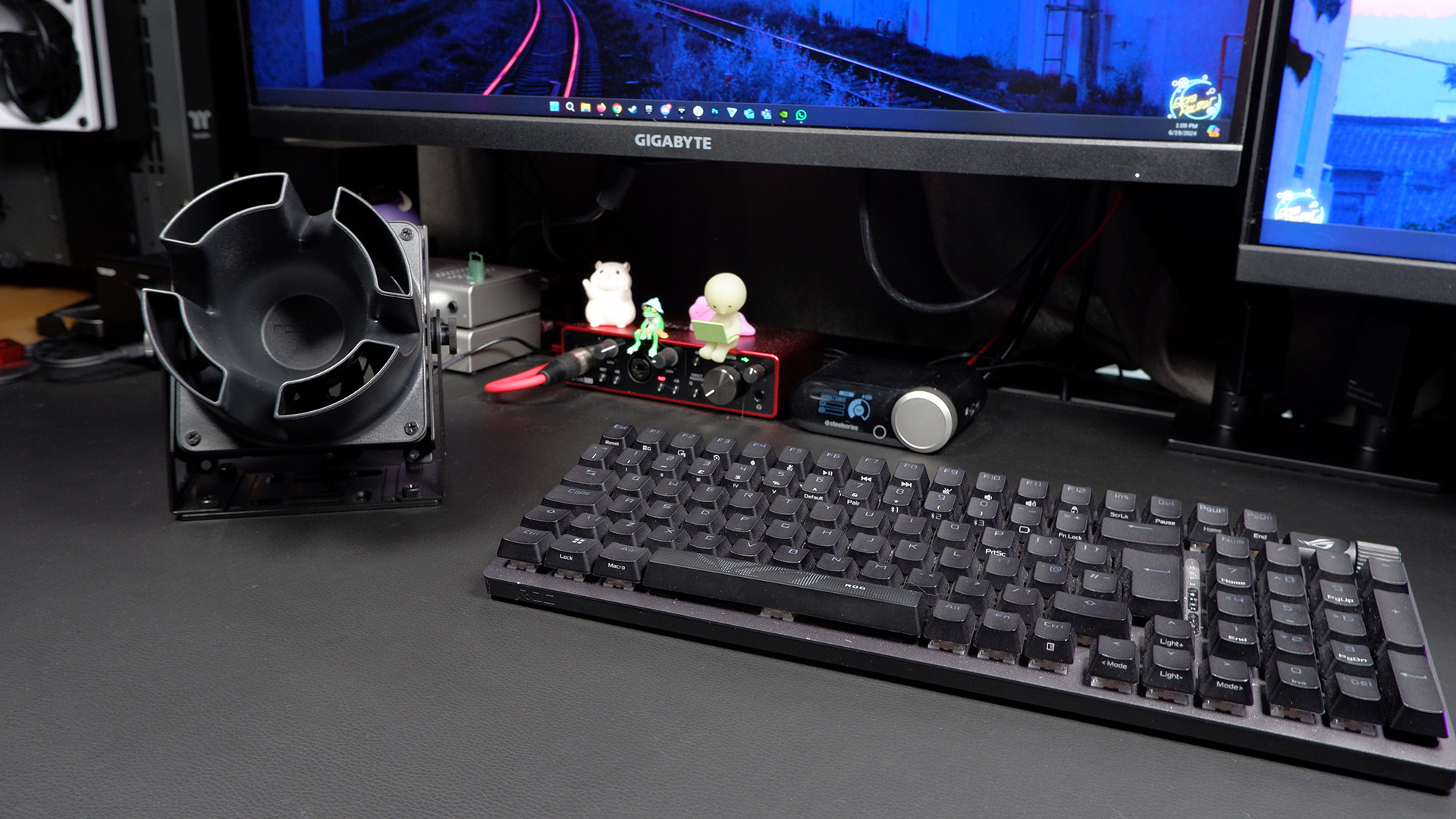
If you've ever wanted a product purely for the street cred you'd receive by having it, let it be the Noctua desk fan. This thing is a sure-fire signifier that you love PC building—it's powered by a friggin' 120 mm 2,000 RPM 4-pin PWM fan, for goodness sake.
A step out of the comfort zone for Noctua, the cooling company hasn't let standards slip with its latest addition. I've been using the desk fan (NV-FS1) to fend off the British summertime heat (16°C, rain) over the past couple of weeks, and I've come away wholly impressed with how it operates.
The NV-FS1 kit is a preassembled desk fan made up of a few key components, each of which is available to buy separately.
- Pivoting fan mount (NV-FM1)
- Airflow amplifier (NV-AA1)
- Controller (NA-FC1)
- Fan grill (NA-FG1-12/14)
- Power supply (NV-PS1)
- And the fan (NF-A12x25 chromax.black)
Yep, that's Noctua's finest fan at the centre of the FS1. The Noctua NF-A12x25 is our pick for the best PC fan and it makes a surprisingly excellent stand-in for a desk fan, too. It shouldn't be any surprise that this fan works as well outside of a case as it does inside one. A good fan pushes the most air for the least amount of noise. The NF-A12x25 does that exceptionally well.
Using the included controller, which contains only a single small dial and a button, I'm able to set the NV-FS1 to a speed that offers a noticeable cooling effect for near-imperceptible noise. That's a lot more than I can say for my regular, rather crappy, USB desk fan, which I picked up from a Korean market many years ago. It's somewhere on the other side of the noise/airflow chart—high noise for not much airflow.
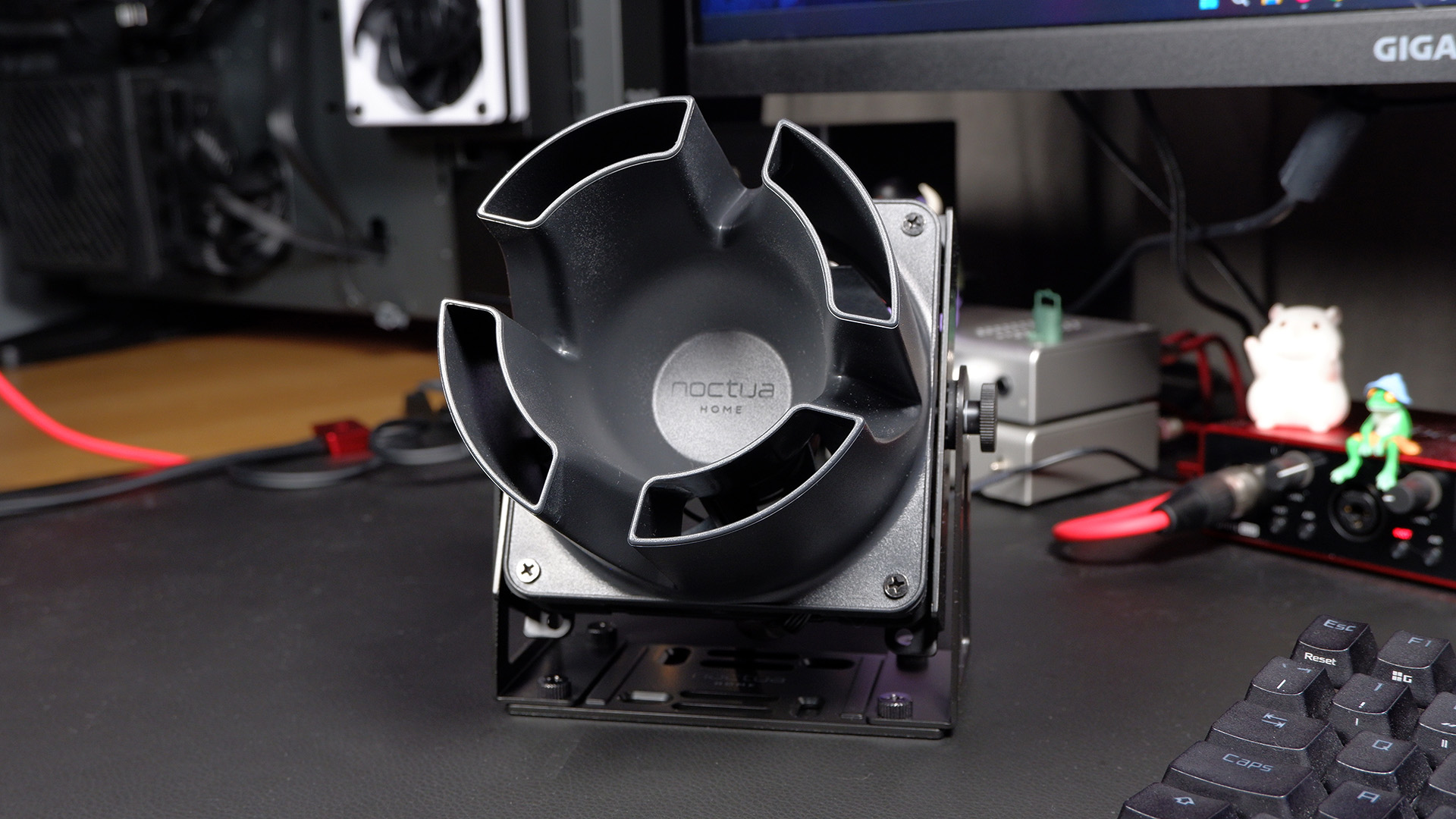
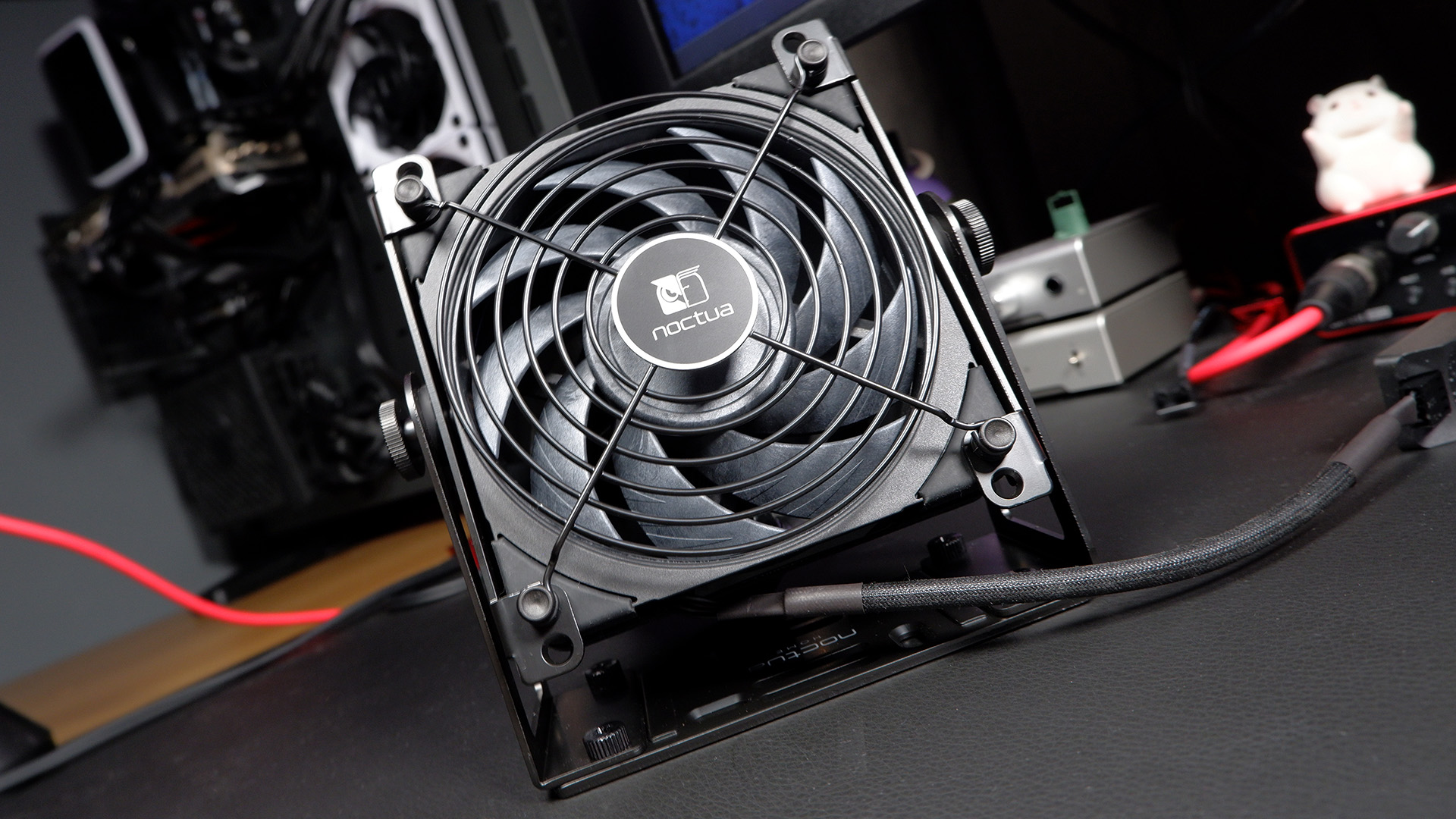
Noctua cites many fancy concepts for how its airflow amplifier works to keep air flowing in a "strong, focused beam of air" at my face. All I know is that it does do a bloody good job of it. So much so, this fan can be cranked all the way up and not cause any issues with my gaming headset's microphone, which has no foam covering to protect it from gusts of air.
If you choose to buy all the parts for the fan separately, you could choose to opt for a 120 or 140 mm fan as the base. The upside of a 140 mm fan is higher airflow for lower RPM, therefore decreasing noise, or increased airflow, should you choose to ramp the RPM all the way up. The downside of a larger fan is there's no airflow amplifier available for the 140 mm size. That means you might lose some direction and end up with a more scattershot blast of air across your desk.
The biggest gaming news, reviews and hardware deals
Keep up to date with the most important stories and the best deals, as picked by the PC Gamer team.
At least there's a larger fan grill available for a 140 mm fan.
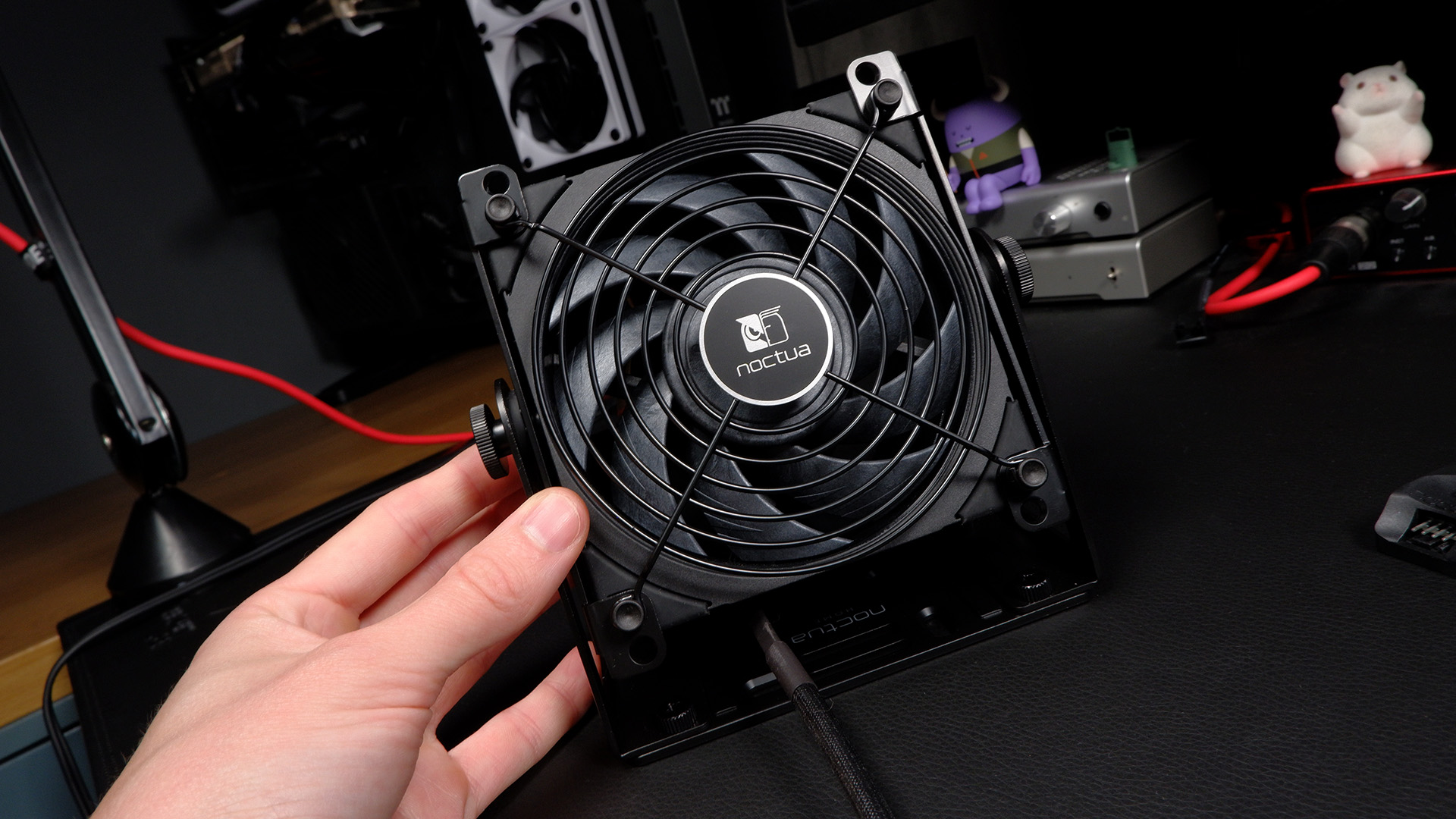
Personally, I'd stick to 120 mm. If only because the fan takes up enough space as it is. It's easily adjustable, at least, with vibration dampening hinges on either side of the stand. It also looks fantastic. The chromax.black A12x25 within an all-black frame serves an industrial look that suits my PC setup and Secretlab Magnus Pro desktop well. You could technically stick a brown and beige fan in here if you were building it yourself—I wouldn't, though.
Since the NV-FS1 comes with magnetic mounts on the bottom, it is kept securely in place on the Magnus Pro's metal desktop—no matter how much my cats try to knock it over. Other mounting options include zip ties and wall plugs, should you wish to affix it more permanently.
So an efficient, quiet and DIY-friendly fan—Noctua has made a good impression with its first product catering to sweaty summer gamers.
Though there are a few downsides to the NV-FS1, however.
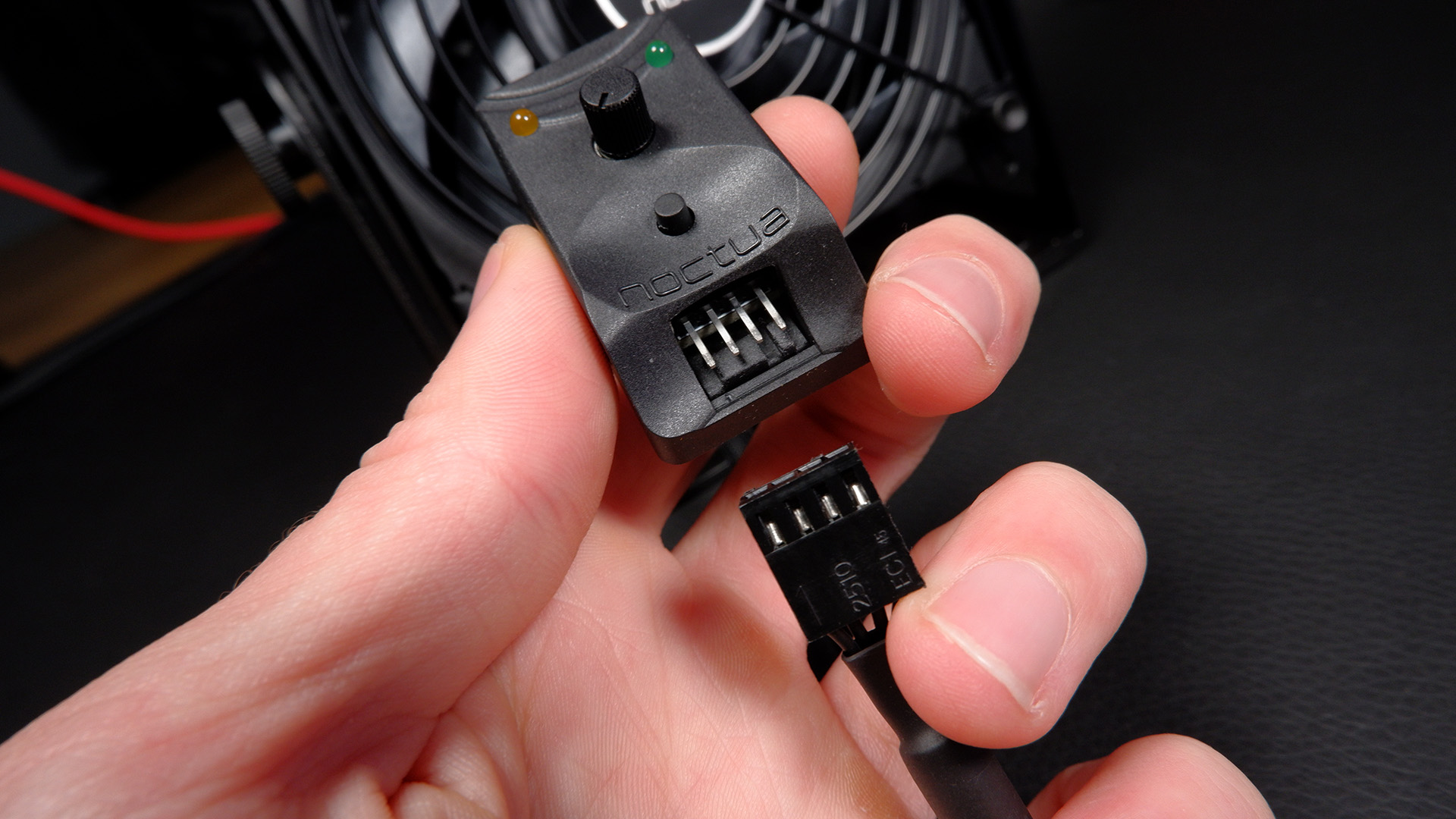
The cabling isn't great—using an off-the-shelf PC fan means you're relying on a 4-pin PWM connection, which is fine, though there's no way to secure it firmly to the controller. Similarly, the cable out of the rear of the controller and connecting to the power supply is another 4-pin connector. There's plenty of length to the cable runs but if I adjust the fan's position on my desk by very much, the 4-pin connector comes loose. They're just not really connectors intended for outside a PC.
I'm not suggesting some special fan with a different connector in place of the excellent A12x25—it being a regular PC fan with a 4-pin connector is part of the appeal—but some sort of latch on the controller would be handy to keep both cables firmly in place. Maybe someone could 3D print something to achieve the same result.
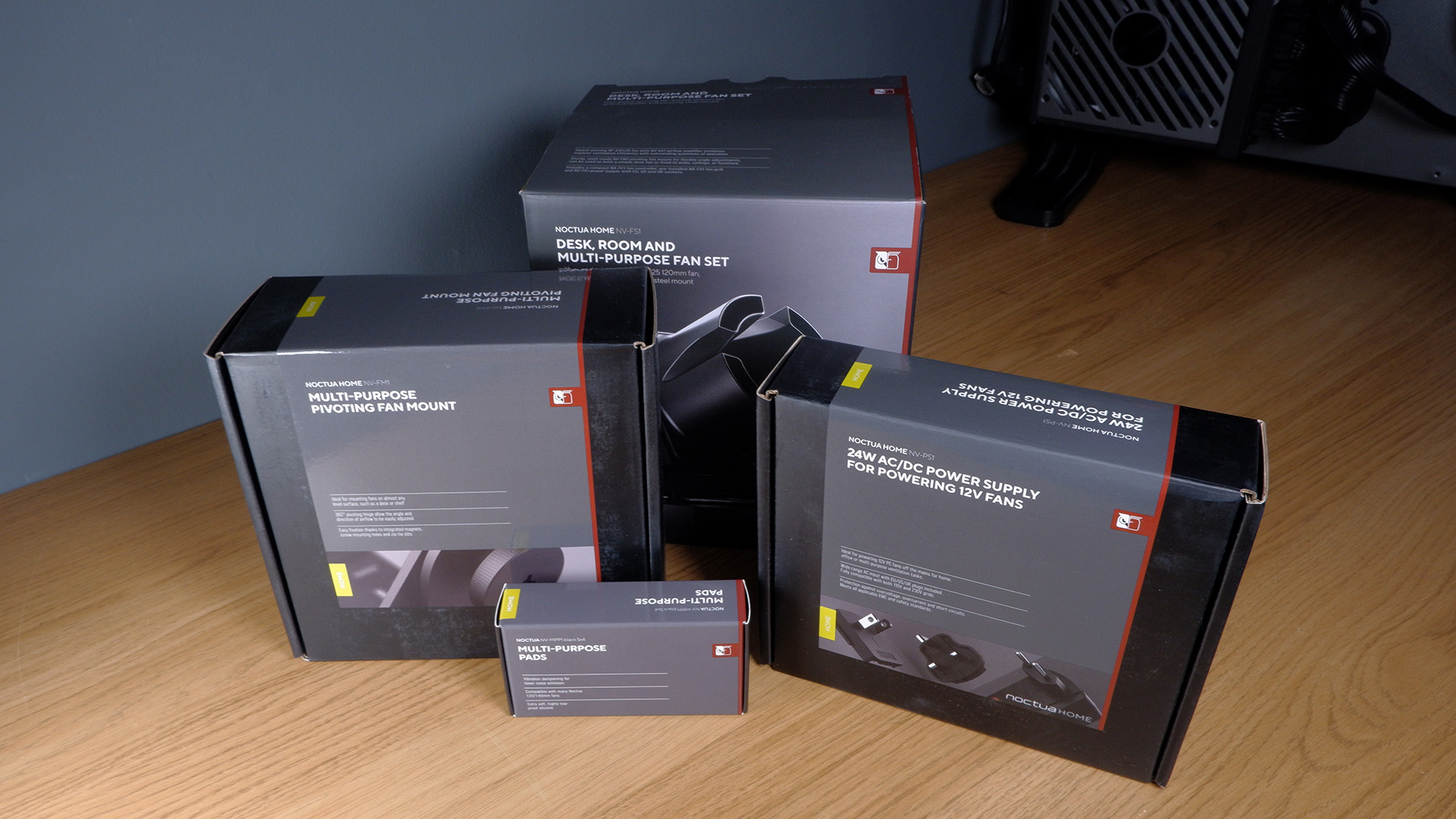
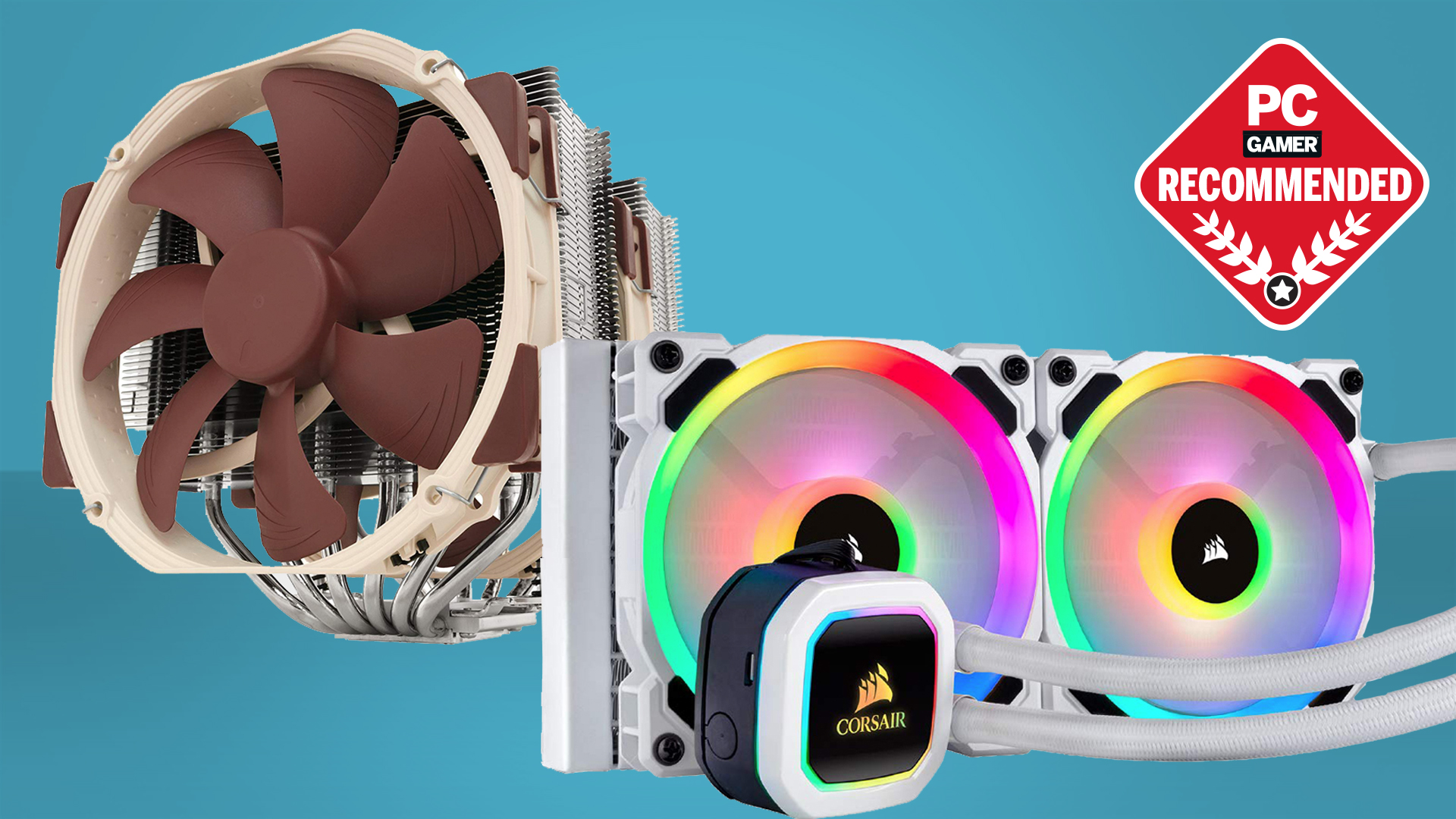
Best CPU cooler: keep your chip chilled in style
Best PC fans: super-silent and plastered in RGB
Best PC cases: big, little, and everything in-between.
Then there's the price.
The NV-FS1 costs $100/£86. That's as much as some CPU coolers or a trio of new chassis fans, and when it comes to personal cooling or PC cooling this summer, which will you choose to invest more in?
Though if you are looking for that finishing touch to your PC gaming setup and you've already nailed your thermals elsewhere, the Noctua desk fan is one of PC gaming's little luxuries. It's not a gimmick or a half-arsed attempt at a product—it's a genuinely excellent Noctua cooling solution and a really quite nerdy way to keep cool over the summer.

Jacob earned his first byline writing for his own tech blog. From there, he graduated to professionally breaking things as hardware writer at PCGamesN, and would go on to run the team as hardware editor. He joined PC Gamer's top staff as senior hardware editor before becoming managing editor of the hardware team, and you'll now find him reporting on the latest developments in the technology and gaming industries and testing the newest PC components.

